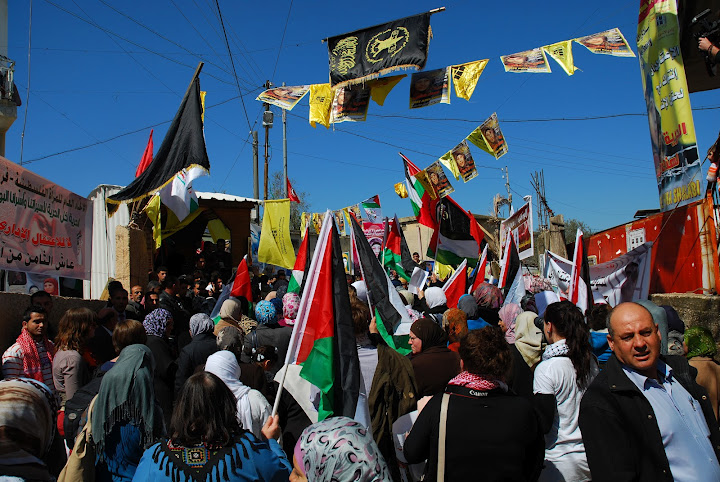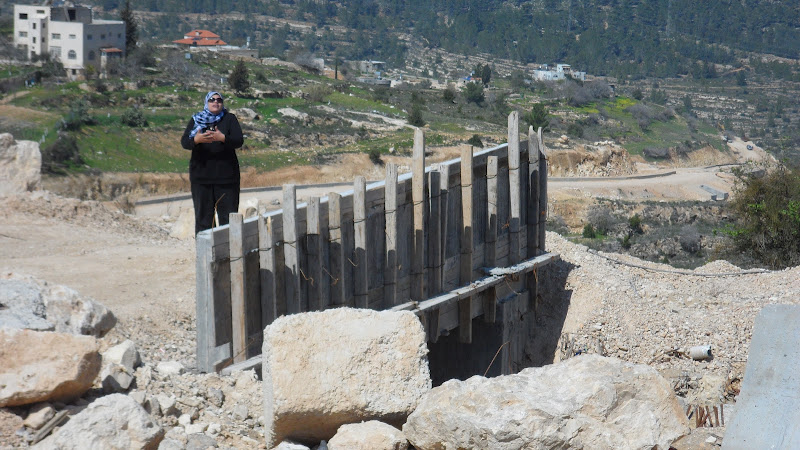Tag: International Women’s Day
-
Bruqin: International Women’s Day Demonstration for Hana Shalabi
by Jeff 8 March 2012 | International Solidarity Movement, West Bank Yesterday, several hundred people traveled from around the West Bank to the village of Bruqin to mark the occasion of International Women’s Day and protest against Israel’s continued imprisonment and confinement of hunger striker Hana Shalabi. Bruqin is Shalabi’s home village, and the…
-
International Women’s Day Marks Hana Shalabi’s 22nd Day of Hunger Strike
8 March 2012 | Palestinian Council of Human Rights Organizations We, the Palestinian Council of Human Rights Organisations (PCHRO), would like to mark International Women’s Day by expressing our solidarity with administrative detainee Hana Shalabi. Hana is today beginning her 22nd successive day of hunger strike in protest at her internment without charge or trial and…
-
Al Walaja: Tunneling to get home
by Ramon Garcia 8 March 2012 | International Solidarity Movement, West Bank Some Palestinians and Internationals gathered in the village of Al Walajeh on International Women’s Day to show solidarity to Omar and his family, especially his wife ,whose health has suffered from Israeli occupation in the small village. Sherinne Alaraj of the local…


